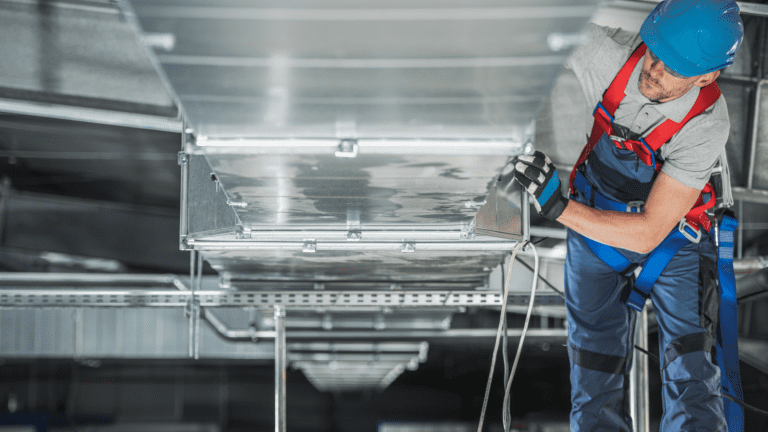 Your commercial compressor is the heart of your refrigeration or cooling system.
Your commercial compressor is the heart of your refrigeration or cooling system.
While every component of the system has an important role to play, the compressor alone is responsible for ensuring the refrigerant gas is at the appropriate pressure. This is what enables the gas to traverse the system correctly and prepares it for use by the other components.
Over time, any refrigeration or cooling system will experience a loss of efficiency due to mechanical wear and tear. This is a normal part of the lifecycle for any mechanical system. The system can compensate for minor issues with various other components, but it will come to a complete stop if the compressor fails.
Likewise, damage to the compressor can cause other parts to wear out quickly or fail unexpectedly.
With all that in mind, the compressor is one of the most vital parts for which you can possibly have a backup. Keeping a few backup compressors in storage is very common in the most demanding industries, such as dairy and meatpacking, where losing refrigeration for just a few minutes can spark a costly crisis.
Yet, the practice of keeping a backup compressor on standby is becoming more and more common.
Let’s examine some of the biggest reasons why:
1. A Backup Compressor Reduces the Impact of Emergencies
No matter the make or model of your existing compressor, it is probably designed for a lifespan of about 8-12 years. Peak efficiency becomes more difficult to sustain as the compressor enters its seventh year of service. Repairs also become more likely, and a replacement plan must be in place to ensure continuity of operations.
When maintained properly, a compressor does not usually fail suddenly – but it can happen. Sudden failure can even be driven by outside circumstances, such as a problem with the building’s electrical system. Instead of scrambling to save products and develop an ad-hoc fix, a backup compressor can resolve the emergency fast.
2. A Backup Compressor Ensures Reliable System Performance
When you replace your compressor, you usually will not find yourself replacing the entire refrigeration or cooling system. Instead, you need to be sure that you have compatible compressor technology that will provide the right level of performance for your unique application and operating environment.
It is often easiest to match the backup compressor model with the compressor that is in the system currently. As technologies improve, many compressors are updated with new features and/or safety controls that were not available previously. We encourage you to purchase a backup compressor that might have incorporated some of the newer features that are compatible with your system. But the time for those decisions is early before a problem arises. If you decide to buy a backup compressor now, you’ll have time to make an informed decision. Please make sure to notify the compressor company when a backup compressor has been installed so the warranty coverage can begin at that time.
3. A Backup Compressor Is Easier to Budget and Source
Whenever you build a system that requires a compressor, you know purchasing a replacement compressor is only a matter of time. However, buying earlier gives you much more control of the circumstances, so you don’t have to look far and wide for your desired model or end up paying a premium price.
When you need a compressor, you don’t want to end up on a waiting list. You especially don’t want to use a “refurbished” compressor. Unlike a remanufactured commercial compressor, a unit sold as “refurbished” has not undergone a complete re-engineering and testing process – in fact, it is possible that it has only been cleaned off.
4. A Backup Compressor May Lower Your Cost of Ownership
While many businesses defer equipment costs as long as possible, it’s crucial to advocate for a forward-looking approach to your compressor maintenance and sourcing. Sometimes, even though your current compressor is still in operation, a backup compressor will give you opportunities to save money.
For example, you might find that your current compressor needs more costly interventions as time goes on. By retiring your existing compressor sooner rather than later, you could end up saving thousands of dollars.
5. A Backup Compressor Gives You the Benefits of Remanufacturing
A remanufactured commercial compressor is one that has gone through a complete quality control process to ensure it delivers performance comparable to an all-new unit. An experienced compressor remanufacturing company can prepare and ship a compressor weeks sooner than a wholesaler at a fraction of the price.
The compressor remanufacturing process includes total disassembly and inspection of the unit. Components are replaced as necessary and both the inside and outside are completely cleaned. Typically, the reassembled compressor will be tested under load to simulate real-world operating conditions.
There are well-worn financial arguments for putting off key equipment costs, including investing in backup systems and components. In the end, though, businesses are more stable – and less likely to incur unexpected costs under emergency conditions – when they have a backup compressor waiting in the wings.












